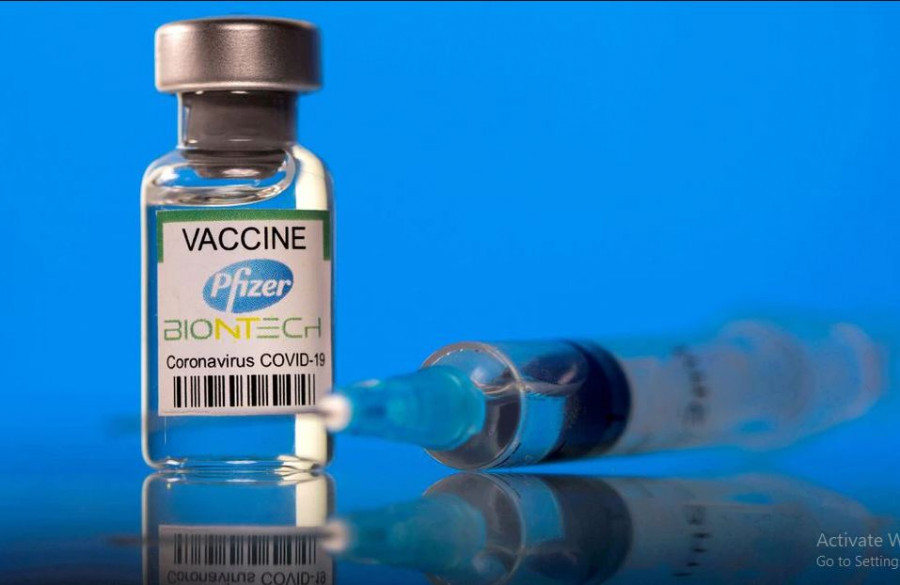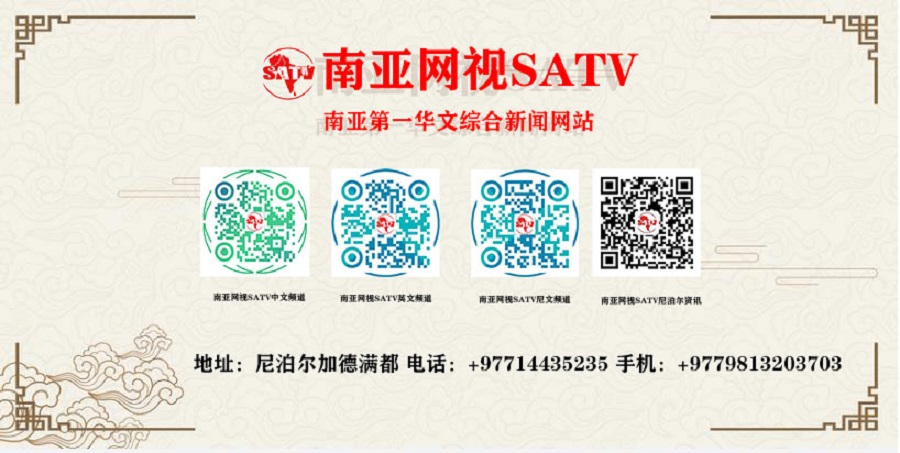
The supply of 6.2 million doses of the Pfizer-BioNTech Covid vaccine from COVAX facility is most likely to start from March, officials at the Ministry of Health and Population said.
They said that the government has accepted the offer of the facility, the United Nations backed international vaccine sharing scheme.
“Vaccine supply will start from March,” Dr Surendra Chaurasia, chief of the Logistic Management Section under the Department of Health Services told the Post. “The vaccine will arrive in several phases and the facility will deliver as per our demand.”
Pfizer-BioNtech is an mRNA-based Covid-19 vaccine, which Nepal has already used. The vaccine developed jointly by the US-based Pfizer and the German firm Biontech uses a copy of a molecule called messenger RNA (mRNA) to produce an immune response.
It is said that the Pfizer-BioNtech vaccine was 95 percent effective at preventing laboratory-confirmed infection with the coronavirus.
According to the US Centers for Disease Control and Prevention, the Pfizer-BioNTech vaccine was also highly effective at preventing laboratory-confirmed Covid-19 infection in adolescents between 12-15 years old, and the immune response in them was at least as strong as the immune response in 16-25-year-olds in clinical trials.
“Evidence shows mRNA Covid-19 vaccines offer similar protection in real-world conditions, as they have in clinical trial settings—reducing the risk of Covid-19, including severe illness by 90 percent or more, among people who are fully vaccinated,” the US Centers for Disease Control and Prevention said on its website.
The vaccine needs to be stored in around minus 80 degrees Celsius for a longer term and can be stored in normal temperatures (2 to 8 degrees Celsius) for up to 31 days.
Officials said that due to limited storage capacity, Nepal will ask COVAX to supply the vaccine in many phases.
Earlier, Nepal had received 100,620 doses of Pfizer-BioNTech Covid-19 vaccine in October and 664,560 doses in December, from the facility.
The doses were administered to the people having underlying conditions—cancer patients, people living with HIV, heart patients, those having renal failure and others. Likewise, children between 12 and 17 years from 20 districts including three districts of Kathmandu Valley were also inoculated with Pfizer vaccine.
Officials at the Health Ministry said that the Pfizer-BioNTech doses will be administered for booster shots once they are received.
The Health Ministry started the booster programme for frontline workers—doctors, nurses, paramedics, lab technicians, hospital staff and ambulance drivers—on January 16.
Journalists, bureaucrats, lawmakers, and those serving in diplomatic missions and financial institutions; prisoners, people living in old age homes, and refugees who were vaccinated in the first phase of the immunisation campaign starting January 27 last year were also administered booster shots.
Currently, people above 60 years, who were jabbed with the Vero Cell vaccine and immuno-compromised persons have been getting the booster shot.
The ministry is also planning to administer booster shots to people over 50 years of age residing in densely populated areas and big cities, once the ongoing booster programme for people over 60 years is complete.
Officials at the Department of Health Services said that discussions are underway to secure a deal to purchase 8.4 million doses of the Pfizer-BioNTech vaccine for children between five and 11.
“A deal has yet to be reached, but we are working to procure 8.4 million doses of Pfizer vaccine for the children between five and 11,” said Dr Rudra Prasad Marasini, director at the Management Division under the Department of Health Services. “We are planning to administer the jab to the children of the said age group from April this year.”
The number of children aged between 12 and 17 years in Nepal is around 3.6 million.
Earlier, the ministry had decided to purchase 6 million doses of the Pfizer-BioNTech vaccine from the US firm under a non-disclosure agreement. The ministry had sent a proposal to the Cabinet and received approval for procurement in its third attempt.
But the deal was suspended at the last hour after Nepal received “sufficient” doses of the Moderna vaccine from COVAX facility to inoculate children between 12 and 17 years. Authorities then decided to purchase vaccines for the children between five and 11 years of age.
There are two types of Pfizer-BioNTech vaccine against Covid-19 for children—one for those aged 5-11 years and the other for those aged 12 years and older.
The American Association of Pediatrics has recommended administering 10 microgram doses in a gap of 21 days to children between five and 11. The dose, 0.2ml, is one-third of what is administered to adolescents and adults.
The vaccine vial for children aged 5-11 is orange-capped to differentiate it from the other vial, which is purple-capped.
Each vial with 10 doses needs 1.3 milliliters (ml) of diluent under Pfizer’s preliminary plan. The vaccines can be stored for six months in an ultra-cold freezer or 10 weeks in a normal refrigerator, according to the vaccine manufacturer.
For the use of the 0.2ml Pfizer vaccine in Nepal, authorities need to take an emergency use approval from the Department of Drug Administration, the country’s drug regulator.
“Once a deal is reached with the vaccine manufacturing company, we will seek the emergency use authorisation from the Department of Drug Administration,” said Marasini.
The World Bank is expected to finance the vaccine procurement.
So far, Nepal has received 45,737,840 doses of vaccines, including AstraZeneca, Vero Cell, Moderna, Janssen and Pfizer-BioNTech.
On Sunday, 1,386 people tested positive for Covid-19—1,183 in 6,443 polymerase chain reaction tests and 203 in 2,808 antigen tests. In the last 24 hours, 11 people died of coronavirus infection.
Active cases stand at 45,248 throughout the country.













